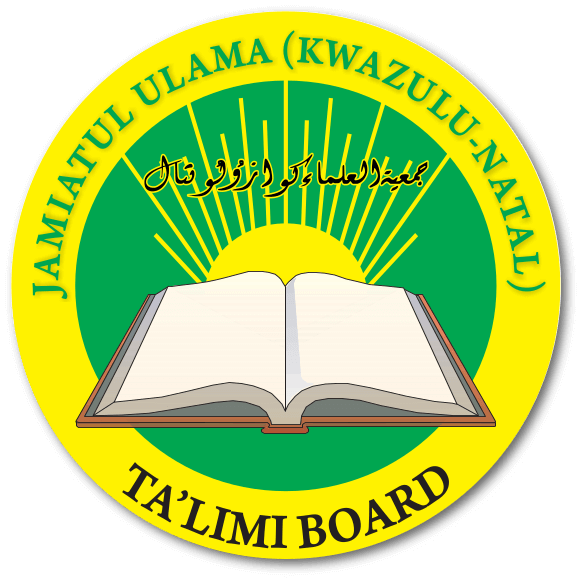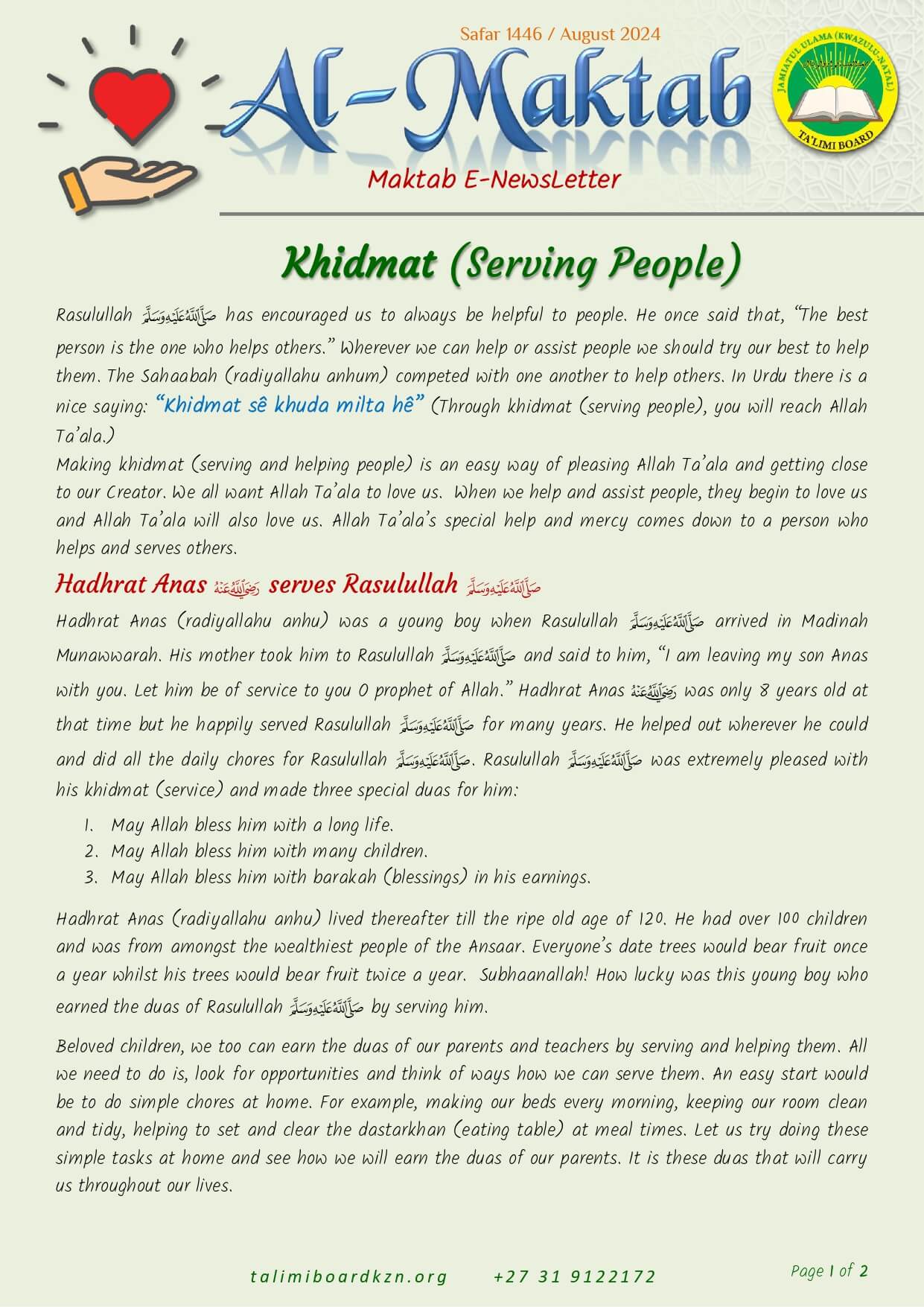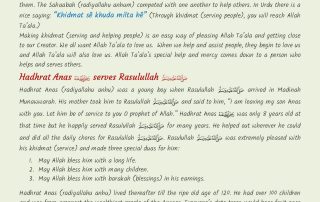Previously some guidelines were published regarding the Hijjeh/spelling method of teaching Yassarnal Qur-aan.
Please see a (4 minute) presentation below on how to spell and read the words in the Yassarnal Qur-aan.
Hijjeh or spelling method of teaching Part One and Two
Respected Asaatizah / Mu’allimaat
Assalaamu alaykum warahmatullahi wabrakaatuhu
We make dua that you be well.
The Hijjeh/Spelling method of teaching Yassarnal Qur-aan Part One and Two is an old tried and tested method which is found to be very successful especially in maktab teaching.
Please find attached audio clip (2 and half minutes). In the last Ta’limi Board workshop we had discussed the importance of using the Hijjeh / Spelling method when teaching Yassarnal Qur-aan Part One and Two.
Please find article attached. Article attached on how to spell and read. Please take out some time to read and study this article and see how we can implement it in our maktabs.
This method will insha Allah assist us to improve the Qur-aan reading in our classes.
Was Salaam
Ta’limi Board (KZN)
Respected Moulana / Apa
Assalaamu alaykum wa rahmatullahi wa barakaatuhu
May Allah Ta’ala accept and guide us towards His pleasure. Aameen.
In the third term, exams are conducted for Practicals and Sunnats.
Please take note of the following;
Practicals
- First teach the entire class practically how to make wudhu, perform Salaah, call out the Azaan, etc.
- Thereafter test each child separately and correct any mistakes. Ensure that each child knows their work very well.
- When preparing the children for the practical exams, please put emphasis on the pupils learning the masnoon duas correctly for wudhu, salaah, eating, drinking, wearing clothes, etc. These duas will also be tested when taking the Practical and Sunnat exams.
- Keep in mind that if every child learns correctly how to make wudhu, perform salaah, etc. the rewards for every wudhu and salaah that child will perform will be credited into the account of the Moulana / Apa.
- Also please put emphasis on the children to learn the*salaah chart*. Children must know the full breakdown of the number of rakaats for each Salaah.
Sunnats
- Teach each child the different sunnats as per the syllabus.
- Explain to them how to implement the sunnats in their lives.
- Ittiba-e-Sunnat [following the sunnah of Nabi Muhammad sallallahu alayhi wasallam] is the greatest thing any Muslim can achieve.
General
- Please print marksheets and have them filled in and ready for the exams. [Marksheets are attached]
- Ensure that the date for the exams is written on the board and that children are ready for the exams.
- Prepare the children well for the exams.
- Inform the parents of the exams and what exactly the children have to learn.
May Allah Ta’ala grant us ikhlaas, accept us, guide us and be pleased with us. Aameen.
Was Salaam
Ta’limi Board (KZN)



